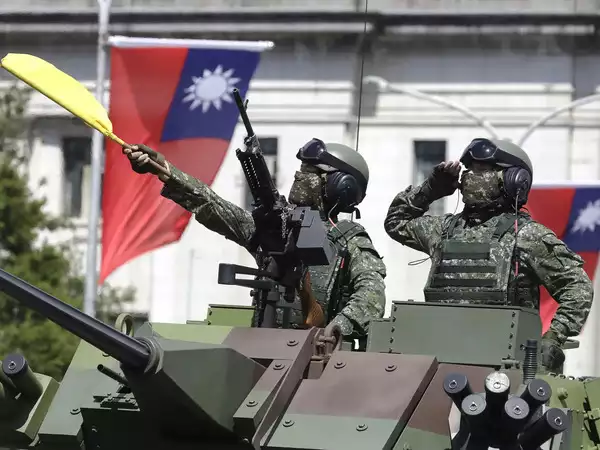The Chinese Ministry of Foreign Affairs has strongly criticized the United States’ approval of additional arms sales to Taiwan, urging Washington to cease all official interactions with the island and halt military support.
In a statement cited by Al Jazeera, China warned that US arms sales send a “wrong signal” to Taiwan independence forces and jeopardize US-China relations. The ministry added, “China will closely follow the developments and take resolute and strong measures to defend our nation’s sovereignty and territorial integrity.”
The arms package, reportedly worth USD 385 million, includes F-16 spare parts and mobile subscriber equipment aimed at bolstering Taiwan’s air defense capabilities, according to media. Su Tzu-yun, Director of the Institute for National Defense and Security Research, stated that the equipment would significantly enhance Taiwan’s wartime preparedness.
Taiwan’s Response and Pacific Tour
Amid these developments, Taiwan’s President is touring South Pacific allies, including Hawaii, the Marshall Islands, Tuvalu, Guam, and Palau, from November 30 to December 6. The trip focuses on promoting sustainability in democracy, diplomacy, and smart development.
Last week, the President reaffirmed Taiwan’s commitment to global peace and stability, stating, “Taiwan will continue expanding partnerships and demonstrate to the world that it is not only a model of democracy but also a crucial force for global peace, stability, and prosperity.”
China’s Stance on US-Taiwan Interactions
China reiterated its opposition to any official US-Taiwan engagements, including visits by Taiwanese leaders to the US. Beijing has urged Washington to adhere to the “One-China” principle and the three China-US joint communiques.
The Chinese Foreign Ministry emphasized that actions such as arms sales “undermine China-US relations and harm peace and stability in the Taiwan Strait.”
This latest arms deal comes as tensions over Taiwan remain a flashpoint in US-China relations. The US continues to affirm its support for Taiwan’s defense, while China views such actions as provocative and detrimental to regional stability.


